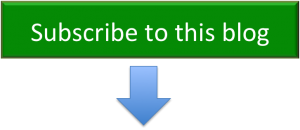The Rise of Online Advertising, and why I don’t get it

On the one hand online advertising is growing, and on the other hand stats show they are not effective. Can someone explain?
For a couple of years I have been blogging to help others. Now has the moment come where I need your help!
My question is very simple:
Why do marketers keep advertising online, while clearly it doesn’t seem to be working?
And before your click away, no, this is not yet another blog post “yelling” to stop advertising, and to start doing content marketing.
This is something else, and I am merely trying to get my head around something.
And for this I need your help…
Why I don’t get it – Conflicting stats
 There are a lot of statistics showing it doesn’t work:
There are a lot of statistics showing it doesn’t work:
- Average banner click-through rates are below 0,2% on average in Europe.
- Only about 12 percent of consumers trust search engine ads (PDF).
- 77 percent of Web display ads are never seen.
On the other hand, lot’s of statistics show that marketers keep investing in this marketing tactic:
- The internet, with its $36.6 billion in advertising revenues in 2012, now only trails broadcast TV by $3 billion, and has moved squarely ahead of cable TV ($32.5 billion) among advertising media.
- Online display (!) Ad spending Up 32 percent in 2013 according to a recent report from Nielsen.
- IAB reports that Internet Ad Revenues at $20 Billion hit a historic high.
Furthermore, the majority of traffic to most sites are not from paid search or banners. According to Conductor , the majority of traffic comes from natural search and referral traffic. Depending on the industry you are in, average websites are pulling in 6% traffic using paid search.
All of this traffic has to somehow result in a little bit of business, right?
Let’s get back to the initial question: why do marketers keep investing in online advertising, and even increasing their investments?
Maybe marketers are investing in online paid media because the conversion rates are higher? That might make sense.
But it doesn’t. According to MarketingSherpa’s 2012 Search Marketing Benchmark Report – PPC Edition, the conversion rate for PPC search ads seems slightly lower than organic search traffic, with a median of 3.5%, and a few more very high performers skewing the average up a little.
200kEUR to spend, what is the best tactic?
If you have 200KEUR to spend on B2B advertising, and the majority of traffic comes through organic or direct visits, why are marketers not trying to improve the channels that seem to be attracting the most traffic?
Why don’t they balance some of that money towards improving the direct and organic channels?
And the 2013 State of Inbound Marketing from Hubspot seems to be confirming this thought: across all industries, PPC as a marketing tactic ends-up somewhere in the middle when it comes efficiency as a marketing tactic (CPL = cost per lead).
Advertising has its place, but still…
Don’t get me wrong.
Cutting out entirely on advertising is not something I am trying to advocate.
I know you need a good mix of paid, owned and earned media around your brand. And sometimes a tactic is used for other reasons than lead generation. It can be about brand awareness, though leadership, or even pure customer service.
And I know you sometimes need a good media push to get the word out, certainly when it comes to new product launches or events. As in “I don’t care, we just need to get the word out”.
But what I do not get is why online advertising keeps growing. To me, the usage of paid online media should be flat, or even declining:
- it’s not the most efficient marketing tactic
- you might want to use it for a marketing “push”, but you don’t need it that often
- other marketing tactics are more relevant to customers
I even feel stupid for not understanding this. Fellow marketers tell me it’s because a lot of marketers keep doing what they always have been doing. Is it because the sheer volume of online consumption is increasing, away from offline? I don’t know.
And I don’t get it.
Can someone please explain ? Please let me know in the comment box…
Warm regards,
Tom De Baere








